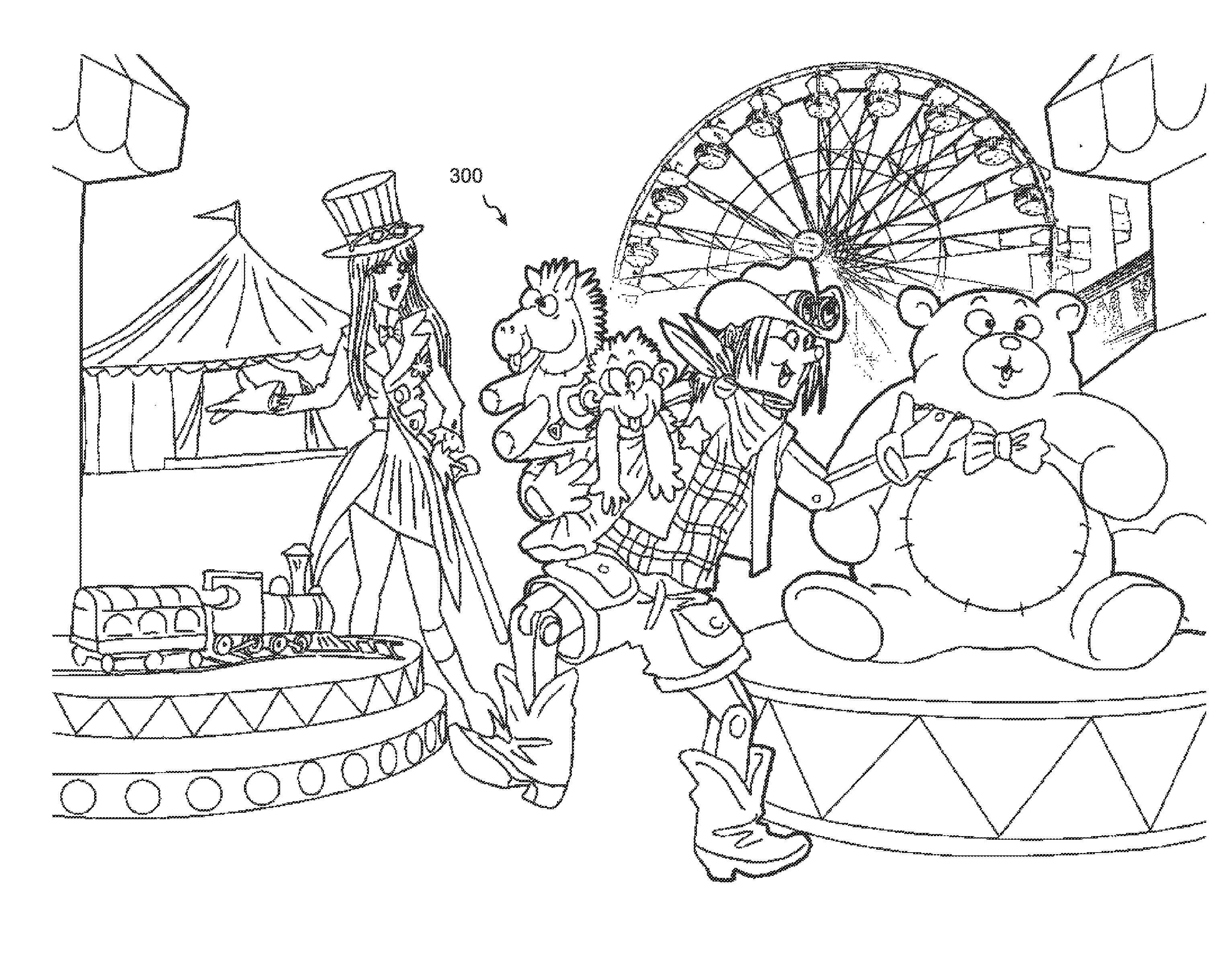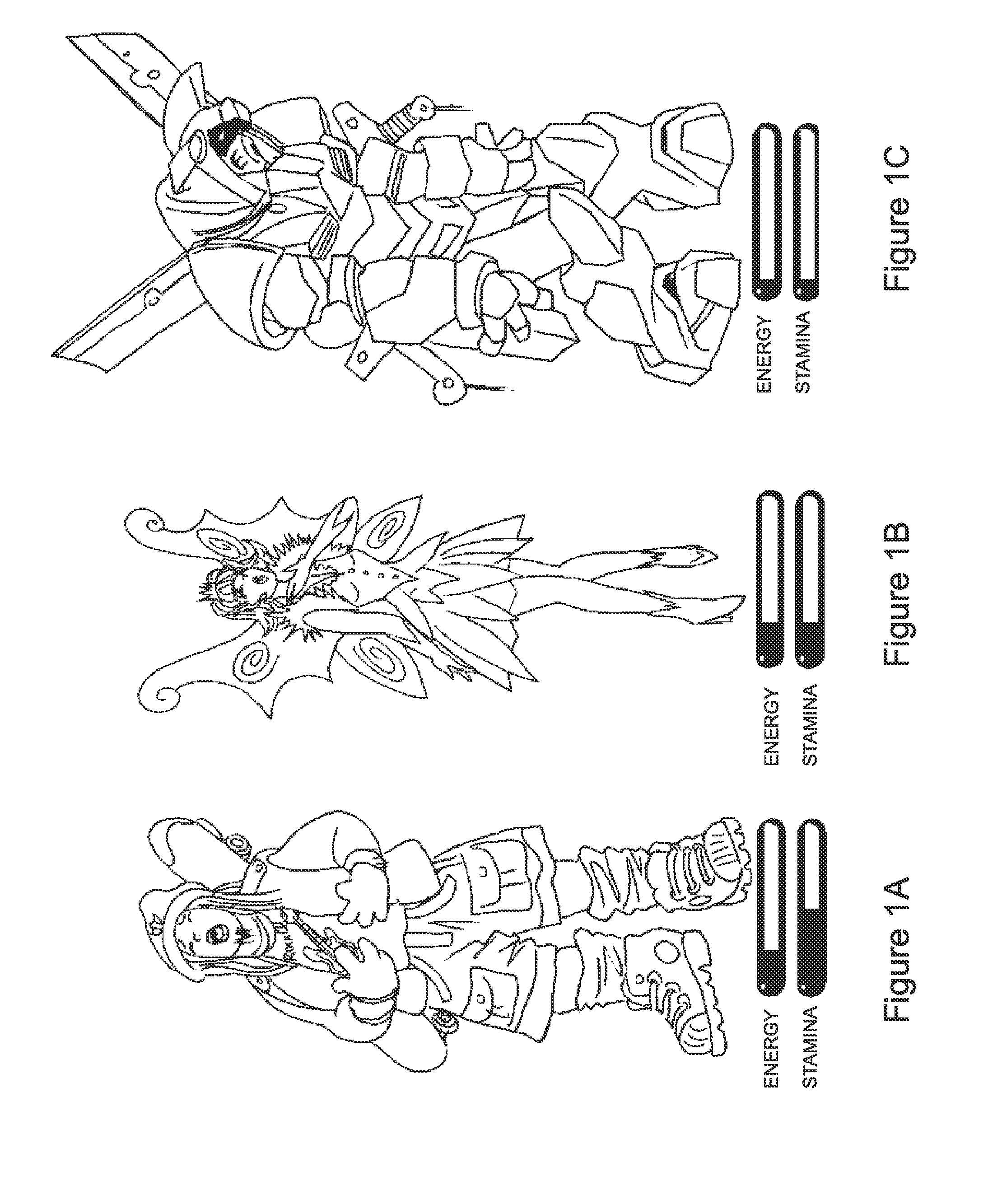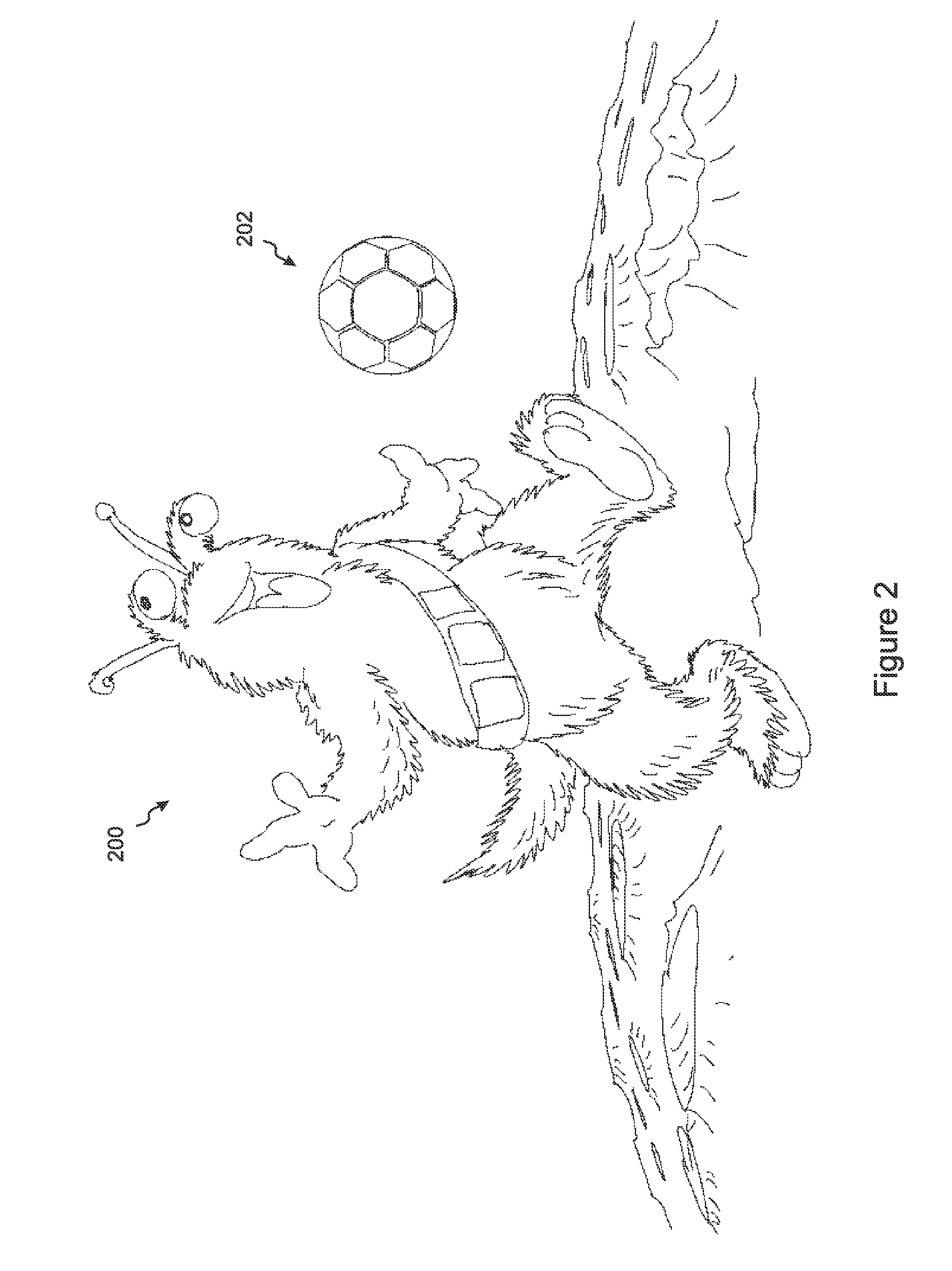[0010]The present invention is an online virtual reality ecommerce
system based on a virtual reality world which imposes needs upon its avatars, thereby providing an enhanced
simulation of the real world, and providing need-based motivations for ecommerce in addition to enjoyment-based motivations.
[0011]
In real life, many of our actions are driven by needs, rather than simply desires for
recreation, amusement, or other enjoyments. These needs provide strong motivations in the real world, and they also enhance our commitment, involvement, enjoyment, and pride of accomplishment in many of the things that we do. It could be said that life is need-driven more than it is enjoyment driven, since our needs must be met before we can turn our attention to
recreation and other forms of enjoyment. Therefore, the virtual reality world of the present invention in which many actions and goals are motivated by needs provides a more realistic
simulation of reality than virtual reality worlds in which actions and goals are motivated only be enjoyment.
[0012]Another benefit of imposing needs on avatars according to the present invention is that there is an enhanced tendency for the avatars to be perceived by their users as separately real entities. The capacity to suffer if needs are not met is basic and essential to the nature of real beings, including people, pets, and most other creatures. By imposing needs upon its avatars, the present invention increases the likelihood that users will relate to avatars as real beings, and will feel compassion, empathy, and even friendship toward them. Instead of being virtual marionettes or figurines, the avatars are perceived as virtual friends, children, and / or pets which can enjoy their relationship with their user, and can possibly suffer if their needs are not met. In virtual reality worlds of the present invention, users tend to emotionally bond with their avatars, which increases their desire to spend time online with their avatars, and to purchase goods for use by their avatars, as well as for use by themselves. As a result, ecommerce is enhanced.
[0015]In addition to basic survival needs, in embodiments of the present invention avatars and their users must invest realistic amounts of time and virtual money if they wish to engage in various desirable activities, thereby causing the activities to seem more real, and success in the activities to be more highly valued and enjoyed. For example, a visit to a distant location can require that the avatar purchase a
ticket for a trip on a
cruise ship. While in
route, the avatar may shop in
specialty stores on the ship, and may meet other avatars who share a similar interest in visiting the destination. When the destination is finally reached, the expense and anticipation of reaching the distant location serve to enhance the excitement and enjoyment upon finally arriving.
[0016]Of course, ecommerce requires a
system of currency, and avatars according to the present invention require virtual currency so as to purchase the things that they need, such as food, clothing, housing, tools, transportation, and such like. In embodiments of the present invention, a user can purchase virtual currency for an avatar in exchange for real money. In some embodiments, an avatar can also “earn” virtual money by performing certain paid tasks within the
virtual world. In addition, a unique feature of some embodiments of the present invention is that a user can “earn” money for his or her avatar by
purchasing real goods within the
virtual world. In some of these embodiments, the avatar receives an amount of virtual money in proportion to the amount of real money spent by the user. For example, the avatar might receive one virtual dollar for every real dollar spent by the user. In this way, the user can simultaneously meet his or her own needs and the needs of his or her avatar, simply by making purchases of real goods in the virtual world instead of in the real word.
[0017]Various embodiments of the present invention provide opportunities for an avatar to take on a fantasy form and to explore and experience a fantasy environment. In embodiments, an avatar is required to possess and use appropriate tools, and / or to take on an appropriate form, so as to exist and interact in the fantasy environment. For example, in some embodiments an avatar must either wear
underwater equipment or must take on the form of an undersea creature so as to explore an undersea environment. Similarly, in certain embodiments an avatar must take on the form of a fairy so as to explore a fairy world where there is no firm ground to stand upon. In some embodiments, an avatar is required to purchase mining equipment so as to enter a mine and explore for gold or diamonds there, and in some of these embodiments the tools and other items
wear out and must be repaired or replaced. Of course, according to the embodiment, many or all of these needs can only be met by expenditures of real and / or virtual funds, thereby further enhancing motivations to engage in ecommerce.
 Login to View More
Login to View More  Login to View More
Login to View More 


